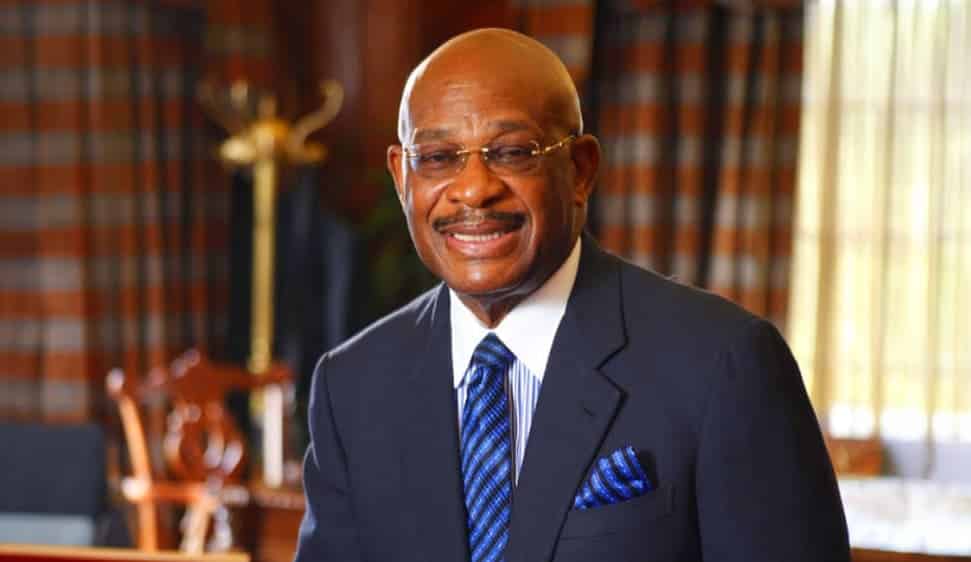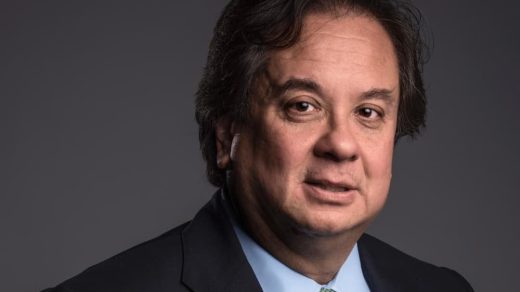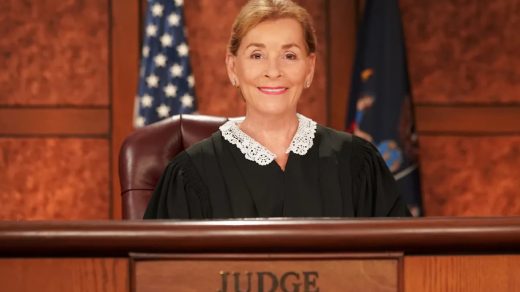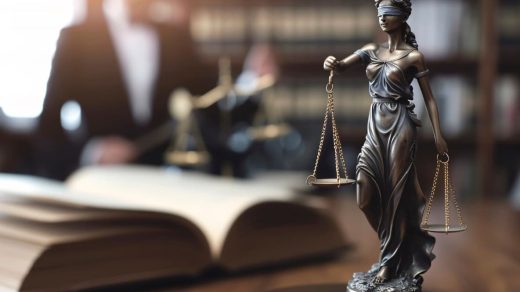How Much Is Willie E. Gary Worth?
The question of willie gary net worth naturally arises given his record of winning massive verdicts. While exact figures remain private, credible estimates place his wealth in an impressive range.
As of 2024, Willie E. Gary’s net worth is estimated to be around $215 million [Source].
Gary’s wealth derives from several key sources:
- Contingency fees: Typically earn 30-40% of verdicts and settlements
- Real estate investments: Substantial property holdings that have appreciated
- Business ventures: Ownership stakes in enterprises beyond his legal practice
His lifestyle reflects this success, with luxury assets including:
- A Boeing 737 private jet named “Wings of Justice II”
- Multiple high-value real estate properties
What makes Gary’s wealth remarkable is the contrast with his humble beginnings.
The sharecropper’s son who worked Georgia and Florida fields transformed himself into one of America’s wealthiest attorneys through legal skill, strategy, and determination.
Gary’s financial success represents a particular version of the American dream—starting with nothing but talent and drive, then building fortune through professional excellence.
His wealth provides tangible proof of his exceptional achievements in law and business acumen outside the courtroom.
It’s worth noting that his largest verdicts have faced challenges on appeal, including the $23 billion judgment against R.J. Reynolds that was later overturned.
These legal realities highlight the complexity behind the headline-grabbing numbers associated with his career.
Who Is ‘Giant Killer’ Willie Gary?
Willie E. Gary has earned his “Giant Killer” nickname through decades of legal victories against some of America’s largest corporations. This isn’t just a catchy title—it’s a reputation built on consistently delivering results in seemingly impossible cases.
Born to sharecroppers in Georgia, Gary’s rise to prominence represents a true American success story. What sets him apart in the legal world is his unique combination of:
- Courtroom charisma that connects with jurors
- Strategic thinking that outmaneuvers corporate legal teams
- Authentic storytelling that simplifies complex legal issues
- Unwavering confidence even against overwhelming odds
Gary’s reputation expanded beyond legal circles when Amazon’s film “The Burial” brought his story to mainstream audiences, with Jamie Foxx portraying his larger-than-life personality. The film highlighted one of his most famous cases against the Loewen Group, a Canadian funeral home corporation.
As founding partner of Gary, Williams, Parenti, Watson, Gary & Gillespie, PLLC in Stuart, Florida, he built a legal practice that consistently delivers results for clients from all backgrounds. His approach to law follows his personal motto: “To whom much is given, much is required.”
Willie Gary Reputation
The “Giant Killer” reputation that follows Willie Gary isn’t just marketing—it’s based on concrete results in high-stakes litigation. This reputation rests on several key foundations:
- Fearless litigation: Gary never hesitates to challenge powerful corporations, regardless of their resources
- Record-breaking verdicts: His case history includes numerous multi-million and even billion-dollar awards
- Compelling personal story: His rise from poverty resonates with jurors and clients
- Media visibility: High-profile cases have attracted national attention
His Florida-based law firm has become synonymous with taking on “David vs. Goliath” legal battles and delivering justice to clients who might otherwise be overlooked. Gary’s reputation extends beyond winning—he’s known for a theatrical courtroom style that captivates juries while making substantive legal arguments.
When clients hire Willie Gary, they’re sending a clear message to opponents that they’re ready for an aggressive fight. His influence has extended to mentoring younger attorneys and demonstrating that background doesn’t determine professional success.
Willie E. Gary Early Life
Born on July 12, 1947 in Eastman, Georgia, Willie Gary’s early life was defined by hardship and determination. His parents, Turner and Mary Gary, worked as sharecroppers—farming land owned by others for a portion of the crops they produced, a system that often perpetuated cycles of poverty.
Despite these challenging circumstances, Gary showed remarkable resilience from an early age. His athletic talents became his first opportunity for advancement, earning him a football scholarship to Shaw University, where he graduated in 1971.
Recognizing education as a path to greater opportunity, Gary continued his studies at North Carolina Central University School of Law, eventually earning his Juris Doctor degree. This educational journey represented a dramatic shift from his early life working in fields.
Law school proved formative for Gary, as he developed both legal expertise and strategic thinking that would later serve him in the courtroom. While many of his classmates came from privileged backgrounds, Gary’s life experiences gave him a unique perspective and drive.
This stark contrast between Gary’s early life in poverty and his later success has shaped both his determination and his ability to connect authentically with clients and jurors from all walks of life.
Willie E Gary Successful Cases + ‘The Burial’ Case and Further Fame
Gary’s legal career features numerous landmark victories, with several cases standing out for their financial and social impact:
| Case | Verdict/Settlement | Year | Significance |
|---|---|---|---|
| O’Keefe v. Loewen Group | $500M (settled: $129M) | 1995 | Featured in the “The Burial” film |
| All Pro Sports v. Disney | $240M | Early 2000s | Claimed Disney stole ESPN’s complex idea |
| Maris Family v. Anheuser-Busch | $120M settlement | 2005 | Defamation case for baseball legend |
| Johnson Family v. R.J. Reynolds | $23B | 2019 | Later overturned on appeal |
The O’Keefe case, later portrayed in “The Burial,” transformed Gary’s national profile. Jeremiah O’Keefe, owner of Mississippi funeral homes, hired Gary to sue the Canadian funeral giant Loewen Group for breach of contract.
Gary’s strategic brilliance shone in this case. Recognizing the racial dynamics in Mississippi, with a majority Black jury and Judge James E. Graves, Jr. presiding, he highlighted racial undertones in Loewen’s business practices.
His emotional appeals resulted in a stunning $500 million verdict, eventually settled for $129 million, which pushed Loewen Group into bankruptcy.
Following this victory, Gary’s fame grew dramatically with magazine features and a “60 Minutes” profile. Ray Loewen, Loewen Group’s CEO, later admitted his legal team had been “blindsided” by Gary’s unique personality and approach.
The Disney case further cemented Gary’s reputation when he secured a $240 million verdict after arguing that Disney had stolen the concept for their ESPN sports complex from his clients.
His representation of baseball legend Roger Maris’s family resulted in a $120 million settlement in a defamation case against Anheuser-Busch, showing Gary’s versatility across different legal challenges.
Career Path
Willie Gary’s professional journey demonstrates the power of persistence and strategic growth. After law school, he faced racial discrimination that remained prevalent in the legal profession during that era.
Rather than accepting these limitations, Gary and his wife Gloria established their own law firm in Stuart, Florida—a bold move for a young attorney without established connections or family wealth.
His career development followed several distinct phases:
- Initial struggles: Building a client base from scratch in a community with few Black attorneys
- Reputation building: Taking cases others avoided and delivering results that generated referrals
- Strategic advancement: Gradually targeting higher-value cases with substantial verdict potential
- National recognition: The Loewen case that elevated him from regional success to national figure
- Legacy development: Mentoring younger attorneys and expanding his influence
Gary’s exceptional understanding of jury psychology has been crucial to his success. He developed a unique courtroom approach combining theatrical elements with substantive legal arguments. His style—passionate, direct, and relatable—consistently resonates with jurors.
Throughout his career, Gary has demonstrated remarkable business acumen. He recognized early that competing with corporate legal teams required building a firm with significant resources. This foresight enabled him to take on cases requiring substantial investment in research, experts, and trial preparation—investments that paid off in larger verdicts.
His approach to jury selection, particularly in the O’Keefe case, revealed his strategic thinking. Gary understood that a majority Black jury in Mississippi would likely respond to arguments highlighting racial discrimination in corporate practices—an insight that proved decisive in securing the landmark verdict.
Awards and Recognitions
Willie Gary’s exceptional career has earned him numerous prestigious accolades recognizing both his legal achievements and community contributions:
- Joseph R. Biden Lifetime Achievement Award (2023) – Honoring his professional excellence
- Presidential Volunteer Service Award (2023) – Acknowledging his community service
- Spirit of Excellence Award from the American Bar Association (2019) – Recognizing his contributions to diversity in law
- Recognition by the General Assembly of South Carolina as one of America’s most accomplished lawyers
These formal honors tell only part of the story of Gary’s impact. His influence extends to real-world changes through his legal work and example.
Gary’s success has created opportunities for other minority attorneys, demonstrating that excellence transcends racial barriers. His willingness to take on seemingly impossible cases has expanded what’s possible in civil litigation, especially for plaintiffs facing powerful corporate interests.
Recognition from institutions like the American Bar Association highlights how Gary’s career represents something larger than financial success—a testament to perseverance, excellence, and the pursuit of justice regardless of obstacles.
Legal Controversies and Criticisms
Despite his impressive victories, Willie Gary’s career has faced significant controversies. As with many high-profile attorneys, Gary has encountered allegations questioning his methods and ethics.
Some former clients have raised serious accusations, including:
- Claims of negligent representation in case handling
- Allegations of prioritizing high-profile cases over other clients’ needs
- Accusations of unethical practices in case management
One notable criticism came from Marietta Goodman, formerly the lead plaintiff in a racial discrimination lawsuit against Coca-Cola. In a 2014 letter to The Florida Bar, Goodman described Gary as “nothing less than a predator that preys on those who have already been victimized,” suggesting he “abuses that trust to enrich himself.”
In 2008, the American Bar Association reported on a rape accusation against Gary, though this claim wasn’t sustained. The existence of a website called “TheClientKiller” dedicated to criticism reflects the intensity of some former clients’ dissatisfaction.
A 2018 jurisdictional argument protected Gary’s firm from claims it had undermined an antitrust and discrimination lawsuit, as reported by Reuters, raising questions about the firm’s management of complex litigation.
It’s worth noting that high-profile attorneys working on contingency fees often face criticism, particularly when case outcomes don’t meet expectations. The nature of Gary’s practice—challenging powerful opponents in emotionally charged cases—naturally creates high stakes and strong reactions when results disappoint.
Philanthropy and Controversy
Willie Gary’s approach to giving back reveals a strong commitment to education and community development, though his charitable efforts sometimes compete with controversies about his professional conduct.
Gary’s philanthropy focuses on several key areas:
- Educational opportunities: Creating scholarships for underprivileged students
- Community health initiatives: Supporting healthcare in underserved areas
- Civil rights advocacy: Promoting economic equality and development
With his wife Gloria, Gary established The Gary Foundation to advance their philanthropic vision, particularly educational programs and mentorship initiatives for disadvantaged youth.
Gary’s experience as someone who relied on a football scholarship influences his focus on creating educational pathways for others. His foundation attempts to create opportunities similar to those that helped him transcend his humble beginnings.
However, Gary’s philanthropy exists alongside criticisms of his professional conduct. Some former clients argue that the “Giant Killer” should be called “Client Killer,” alleging that pursuit of personal wealth sometimes comes at clients’ expense.
These contrasting narratives—Gary as generous philanthropist versus self-interested attorney—reflect the complexities in evaluating public figures. His charitable work shows genuine desire for positive change, even as questions about professional ethics remain relevant.
Gary views philanthropy as an obligation rather than an option. As he often states, “To whom much is given, much is required”—a philosophy guiding his approach to giving back, regardless of controversies in other areas.
Personal Life
Behind the courtroom drama and business success, Willie Gary maintains a family-centered life that grounds his professional endeavors.
Gary lives in Stuart, Florida, with his wife Gloria, his partner both in life and in building their enterprises. Their marriage has produced four sons—Kenneth, Sekou, Kobe, and Ali—with Kenneth leading family businesses as president of both The Gary Foundation and the family’s real estate firm.
Personal experiences have shaped Gary’s professional outlook. Early in his career, after law school graduation, he encountered racial discrimination while apartment hunting—an experience that reinforced his commitment to fighting for equal rights.
Beyond legal work, Gary maintains active memberships in professional and civic organizations:
- American Bar Association
- The Florida Bar
- National Bar Association
- NAACP
These affiliations reflect his ongoing commitment to the legal profession and broader social justice causes.
Despite wealth and success, Gary maintains a strong work ethic and connection to his origins. As he told USA Today: “I was born into the harsh fields of Georgia and Florida, so I’m no stranger to hard work. I don’t think I’d ever want to walk away from the chance to help a family get something they feel they deserve. I don’t know what I’d do if I couldn’t practice law.”
This statement reveals how Gary’s identity remains intertwined with his professional work—practicing law provides purpose and meaning beyond financial reward.
FAQs
- What is Willie Gary most famous for?
Willie Gary is most famous for being a highly successful trial attorney nicknamed “The Giant Killer” for winning massive verdicts against major corporations. His most notable case was featured in “The Burial,” where he won a $500 million verdict (later settled for $129 million) against the Loewen Group.
- How did Willie Gary become so wealthy?
Gary built his wealth primarily through contingency fees from major legal victories, typically taking 30-40% of settlements or verdicts. With over 150 cases yielding verdicts of $1 million or more, these fees generated substantial wealth, further grown through real estate investments.
- What is Willie Gary’s educational background?
Gary attended Shaw University on a football scholarship, graduating in 1971, then earned his Juris Doctor from North Carolina Central University School of Law, establishing credentials that launched his legal career despite his humble beginnings.
- What philanthropic work does Willie Gary do?
Gary and his wife established The Gary Foundation, focusing on educational opportunities for underprivileged students through scholarships and mentorship programs, along with supporting healthcare initiatives and civil rights causes.
Also Check:
Conclusion:
Willie Gary’s story represents a remarkable American success narrative transcending the legal profession.
From Georgia fields to commanding a Boeing 737, his journey demonstrates what determination and talent can achieve despite systemic barriers.
With a net worth estimated between $100-215 million, Gary has achieved financial success that few attorneys approach.
Yet his legacy extends beyond money to include his impact on the legal landscape, particularly for plaintiffs facing powerful corporations.
The contrasts in Gary’s story make it compelling: from poverty to wealth, from discrimination to empowerment, from long odds to historic victories.
These contrasts create a narrative resonating beyond legal circles to touch fundamental American themes of opportunity and perseverance.
The controversies surrounding aspects of Gary’s career provide important nuance. They remind us that celebrated figures contain complexities resisting simple characterization.
The accusations by former clients create a counternarrative that cannot be dismissed, even as his achievements stand undisputed.
What remains clear is Gary’s exceptional courtroom ability and willingness to tackle cases others deemed unwinnable.
His “Giant Killer” nickname captures something essential about his approach—fearlessness in challenging power and confidence in prevailing against overwhelming odds.
Through “The Burial,” Gary’s story has reached audiences far beyond the legal profession, inspiring new generations to consider what’s possible regardless of starting point.
Whether viewed as a flawed hero or an unqualified success, Willie Gary’s journey from sharecropper’s son to legal powerhouse offers valuable lessons about perseverance, strategy, and the power of believing in possibilities others cannot see.




